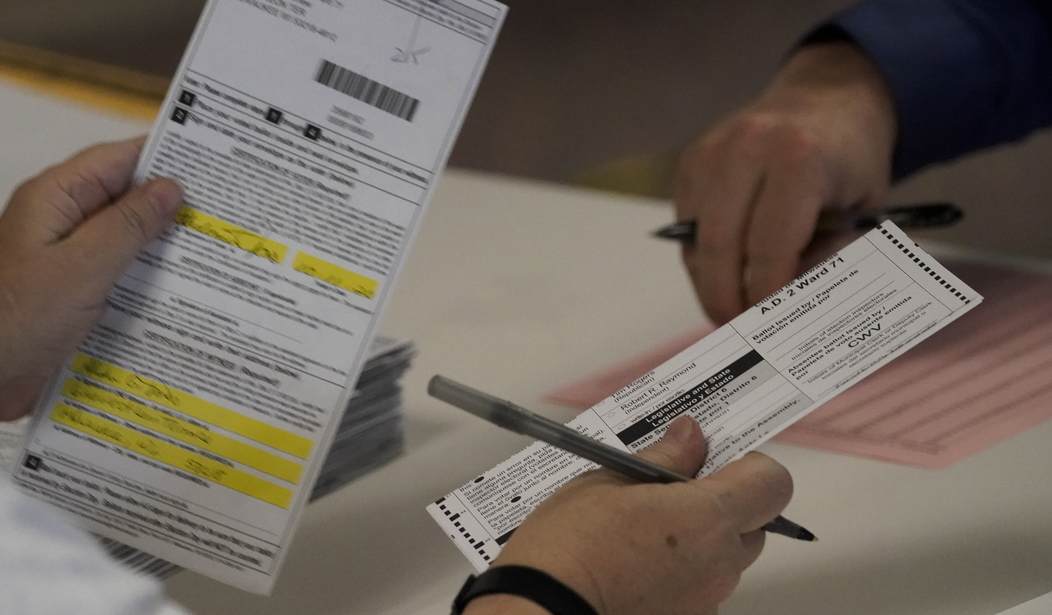Right at the top here I would note that this is NOT the lawsuit filed in federal court on December 1, 2020, by Sidney Powell. As was noted by the Trump Campaign last week, Powell and others are pursuing litigation on their own and not as part of the Campaign’s legal efforts.
What was filed yesterday by the Campaign was the next step in the process of contesting the outcome of an election under Wisconsin lay, which follows the completion of the recount requested by the Trump Campaign under Wisconsin law given the narrow margin of the outcome of the election.
This Complaint initiating the Election Contest challenges several categories of ballots that were counted by the Election Boards of Dane and Milwaukee Counties during the recount process, all of which were the subject of objections by the Trump Campaign during the recount process. The objections were denied by the Election Boards, and the ballots were included in the final tabulated results. Specifically, the Campaign makes the following distance claims with respect to alleged invalid ballots:
- Whether absentee ballots issued in-person to voters by municipal clerks’ offices in Milwaukee Dane County without the required written applications are illegal and invalid.
- Whether absentee ballots accompanied by incomplete certifications or on which municipal clerks added missing information in contravention of Wisconsin law are illegal and invalid.
- Whether absentee ballots cast by electors claiming “Indefinite Confinement” status, which status was claimed on or after March 25, 2020, for which there was no voter identification provided are illegal and invalid.
- Whether stationing poll workers, receiving ballots, witnessing ballot certifications, and other clerk’s office activities in Madison’s “Democracy in the Park” events complied with Wisconsin Election laws.
- Whether relief by drawdown is appropriate for legal violations committed at the “Democracy in the Park” events.
The Complaint alleges that over 170,000 absentee ballots were accepted and counted in the two counties when the voter did not fill out an application for an absentee ballot.
The Complaint alleges that over 5,500 absentee ballots were accepted and counted when a person in the Election Clerk’s office filled out some of the information required on the outside of the ballot envelope.
More than 28,000 votes are claimed to have been cast by individuals who did not meet the definition of “indefinite confinement” and thereby avoided the otherwise mandatory voter identification requirement.
Finally, it alleges that more than 17,000 ballots were received and later counted at “Democracy In The Park” events.
The vote differential between Pres. Trump and Biden in Wisconsin ended up at 20,427 votes. Any of the five bases for disqualifying ballots — other than the one regarding ballots where some missing information was added by Election workers — would, for the most part, overcome the entire difference.
The two most significant claims to me are the issues of the lack of an application for an absentee ballot, as that is a matter expressly addressed in the Wisconsin statute, and the issue of justifying the use of an “absentee ballot” on the basis of being “indefinitely confined” which provides a path to register and vote without ever having to provide a picture identification — as is otherwise required by Wisconsin law. I wrote about this issue last week in this article, and I’m not going to cover it further here.
With regard to the first allegation involving the absence of a written application for an absentee ballot, the Complaint alleges that Wisconsin law requires that a voter submit a written application for an absentee ballot before such a ballot can be issued by the County Board of Elections where the voter resides. Here is the language of Wis. Stat. § 6.86(1)(ar) which the Complaint claims apply:
(ar) Except as authorized in s. 6.875 (6), the municipal clerk shall not issue an absentee ballot unless the clerk receives a written application therefor from a qualified elector of the municipality. The clerk shall retain each absentee ballot application until destruction is authorized under s. 7.23 (1). Except as authorized in s. 6.79 (6) and (7), if a qualified elector applies for an absentee ballot in person at the clerk’s office, the clerk shall not issue the elector an absentee ballot unless the elector presents proof of identification. The clerk shall verify that the name on the proof of identification presented by the elector conforms to the name on the elector’s application and shall verify that any photograph appearing on that document reasonably resembles the elector. The clerk shall then enter his or her initials on the certificate envelope indicating that the absentee elector presented proof of identification to the clerk.
There is an absentee ballot application form issued by the State of Wisconsin. It would seem reasonable to presume that the statute’s reference to a “written application” is a reference to this form. Further, the statute directs the Clerk to retain each such absentee ballot application until such time as destruction is authorized by law.
Yet the complaint alleges that the Clerks’ offices in Dane and Milwaukee counties issued absentee ballots in-person and interpreted the “application” requirement to be satisfied in another fashion.
[I]n both Dane and Milwaukee Counties, the Canvassing Boards found that the Clerk’s receipt of form EL-122 (the “Envelope” in which the absentee ballot is placed by the elector after it has already been received by the elector and after it has been completed) was sufficient to satisfy the statutory written application requirement.
It is hard to logically conceptualize the claim that the envelope in which a ballot is RETURNED can constitute the “application” that must be submitted before a ballot can first be provided. Yet that is the tortured logic of officials in Dane and Milwaukee Counties. It is no small matter that the statute is written in the form of “negative authority” (for lack of a better phrase). By that I mean the statute is written is such a way as to state that the Clerk has no authority to take an action prior to the fulfilment of a condition precedent to taking that action, i.e., “the municipal clerk shall not issue an absentee ballot unless ….”
It is not surprising that the Canvassing Boards of Dane and Milwaukee Counties disallowed the objections, after all, it was the Clerks of those two counties who issued the ballots in seeming contravention of the plain wording of the statute.
If the Wisconsin Supreme Court countenances this deviation from the statutory text, it simply means “the fix is in.”
But because this is purely a matter of statutory interpretation of a state election statute, my instinct tells me that there probably is no remedy available to the Campaign if the Wisconsin Supreme Court rules that the votes should be counted.














Join the conversation as a VIP Member